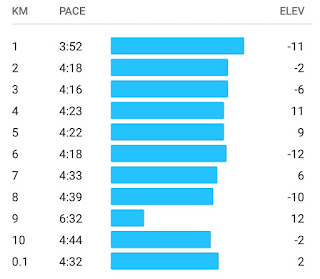With the sun having dried my Salomon Speedcross 4, I am slowly coming back to running again after
Umeå Ultra 50k. Meanwhile at work, I am rushing between lecture halls and trying to fit everything into an impossible schedule as several important deadlines are rapidly approaching. Among them, abstract submission for WPSA 2020 in Los Angeles stands out.
After attending a string of conferences this year, I sort of decided to stay low with conferences for a while but somehow I feel that I need to be part of these debates. Right now, I am playing around with an abstract for a paper with the preliminary title “
Avoiding the low-energy trap: how climate inaction may end up saving the climate” that would go something like this:
“There is no longer any meaningful debate about the physical reality or the urgency of the climate crisis. There is, however, deep and reasonable disagreement about what an effective response to that crisis would actually entail, especially when considering a world of competing material interests, fractured epistemologies and lingering geopolitical conflicts. In more radical literature, it is often suggested that climate change calls for a rapid transition to an all-renewable future of degrowth and the relocalization of the economy. Beyond the obvious problem of political realism, this article explores the possibility that the pursuit of such a low-energy future would risk leaving humanity without the technology needed to return atmospheric concentrations of greenhouse gases to pre-industrial levels. In addition, a possible breakdown of the world trade system would worsen situations of local scarcity and increase vulnerability to extreme weather events. As such, the present state of climate inaction may paradoxically be more conducive to achieving a long-term sustainable trajectory, especially if political momentum can be summoned to accelerate the rate of low-carbon innovation.”









































